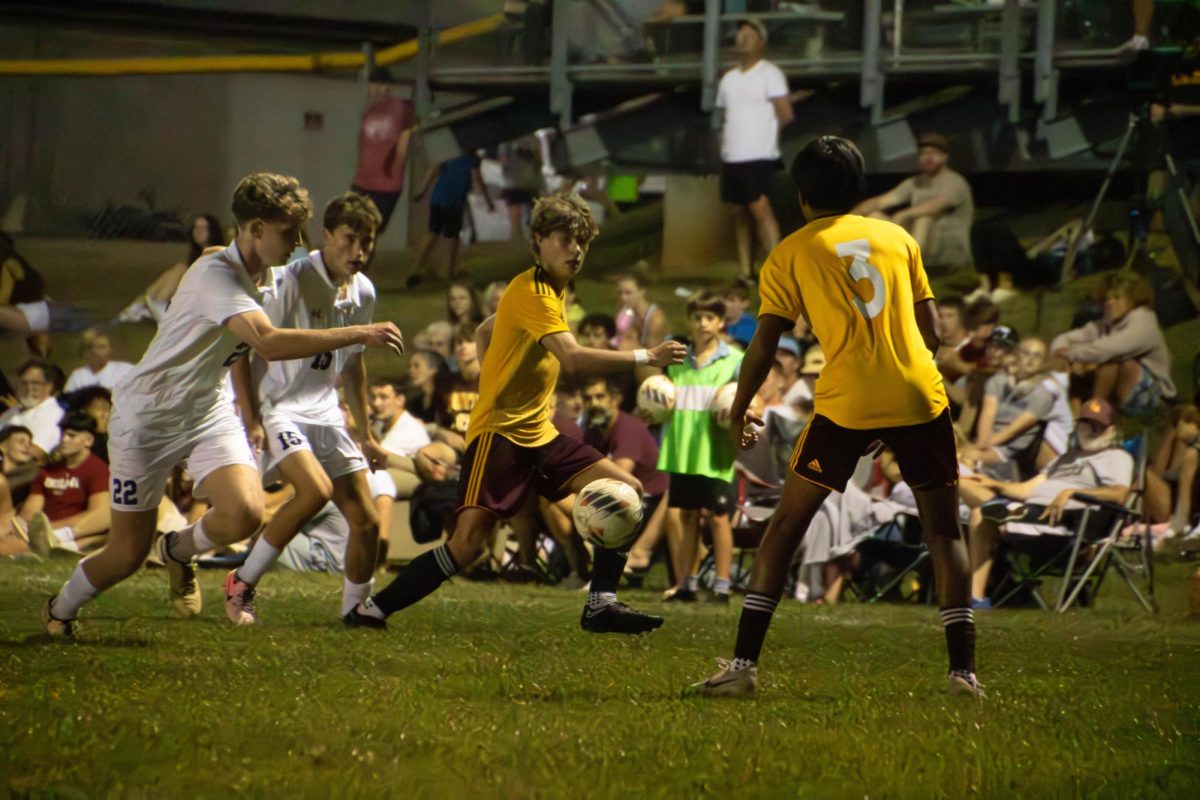Ernie Thompson, former running back for the Los Angeles Rams in 1991 and the Kansas City Chiefs in 1993, always woke up at 6:30 before his games. It was a constant for him. “The first thing I did was take a shower, without fail. And then I drank a cup of coffee,” Thompson said.
Thompson’s pregame ritual did not end at his morning routine. He methodically put on his gear the same way every time. He always put on his right sock, then his left sock, followed by his pants. Thompson would then put on his cleats, always right before left, and he would meticulously tie his laces, making sure they were symmetrical and perfect.
Thompson explains, “It didn’t have anything to do with me mentally preparing for a game, but it did give me a calming effect. Instead of worrying about the game and how I was going to perform, I was so concerned about putting my shoes on and making sure my shoe laces were straight. That had a calming effect for me.”
Pregame rituals are used by most serious athletes. They are behaviors that people perform before an event that may be illogical or unexplained, sometimes superstitions. From listening to a special song, to eating a specific food, these rituals and superstitions are what some athletes depend on.
Athletes don’t just believe that these rituals will make them perform better. Some also feel that they put them in the right mindset, keep them safe from injury, or give them good luck. Pregame rituals may even just be a habit.
Here at North, athletes also believe that these rituals will help them succeed. Juliana Maltese, a freshman on the girls soccer team said, “Before every game I eat pickles and I always listen to music.” Maltese describes, “Pickles help to prevent cramps during the game, and I listen to music to help me lock in.”
Maltese’s rituals help her both mentally and physically. Other team rituals also help build a better environment. The girls soccer team participates in “Soccer Sisters”, which is a group of 3-4 players, a mix of underclassmen and upperclassmen. Every home game the girls get each other small gifts, such as favorite snacks and drinks. This routine helps build a supportive community.
Eileen Moellers, a freshman on the girls cross country team here at North describes, “The cross country team has a really good environment, so we always have team dinners the day before a meet. We also buy each other gifts through secret runners, which is really fun.” She says, “We listen to different types of music, mainly hype music that they play at the start line. Then, at the start line, we grab each other’s bibs and wish each other good luck.”
These rituals not only help develop a good team environment, but they individually benefit athletes. Moellers explains, “Physically our rituals help us get into a rhythm, and mentally they give us a positive mindset of where we want to be in this season and how we interact with our teammates.”
Psychologists also notice these rituals. Dr. Edward Hirt, a professor of psychology and brain sciences from IU says, “I think that one of the biggest reasons why any of us have rituals is to get ourselves in the right frame of mind before we have to perform. I think having some kind of routine gets us settled and gives us that familiarity that helps us relax.”
He believes that routines and rituals are almost calming to the brain. Hirt says that anxiety and stress can often stem from unpredictability and having a stable routine can help balance these feelings.
In sports with specific routines such as gymnastics and diving, as well as some other performance based sports, he believes that rituals can sometimes almost become a part of the routine, including actual performance. Hirt says, “You’re actually playing out in your sports performance a specific sequence of moves and events, so you have things that help you click that routine into place.”
Additionally, mindset is a large part of pregame rituals. Hirt explains that in physical performance, one of the most important mindsets is confidence. He points out that having a familiar ritual can help build this confidence and keep everything under control. He says, “The concept of how familiarity breeds confidence and the idea that you can repeat it and execute it, as you have practiced before helps athlete’s mindsets.”
If you’re trying to build your own ritual, Hirt explains that it is all in your hands. You have to find what works best for you. Whether it is trying new things until something clicks for you, or seeing someone you look up to using a specific routine, superstitions like these are completely personal to an athlete.
Pregame rituals are extremely beneficial to athletes. Whether they put you into the correct mindset, directly help you perform better, or are merely superstitious, these rituals can build familiarity and confidence. They can also help build team environments and, like with Ernie Thompson’s socks, can help professional athletes find calm.








